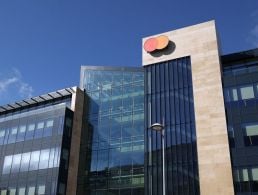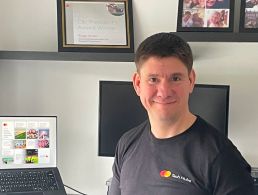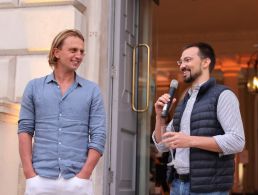Vice-president of Mastercard Labs, Amy Neale, explores her colourful career journey across start-ups, academia and more.
What are the most important things for new innovators and entrepreneurs to bear in mind? Amy Neale, vice-president at Mastercard Labs, has 15 years of experience in technology commercialisation and can offer some solid advice.
Neale now leads the Mastercard Start Path start-up engagement programme, through which her team “scouts the globe for the best and brightest scaling fintech and commerce start-ups”. The initial aim is to engage these emerging businesses with Mastercard through a bespoke six-month programme but, according to Neale, “the end goal of this work is to provide value to all sides – supporting start-ups to scale, customers to innovate, and Mastercard to partner”.
Here, Neale discusses her journey from a computational linguistics PhD to where she is now, and what she has learned along the way.
‘I’ve learned that building relationships and trust is the bedrock of commercial success’
– AMY NEALE

Amy Neale. Image: Mastercard
Were you always passionate about emerging technologies?
My career has been driven by getting new technologies into people’s hands. I’m endlessly excited about both new solutions built on technology, and the process involved in turning ideas, IP and opportunities into tangible products that make a difference in the world.
What experiences led you to your current position?
My career has spanned academia, start-up, venture [capital] and corporate, enabling me to get a broad perspective on what it takes to develop technology products. I started out with a PhD in computational linguistics at a time when the tech was nascent and the potential use cases were not clear. Over the last 15 years, I’ve seen the progress of both mobile and cloud making real experiences that were purely ideas back then.
I’ve also been privileged to work with some truly inspiring people – people driven by a mission to change the world, whether as researchers, entrepreneurs or business leaders – and by getting involved in their work I’ve learned that building relationships and trust is the bedrock of commercial success. Mastercard’s CEO talks about the “decency quotient” and that makes so much sense to me.
What’s the best part of your job at Mastercard?
I get to work with an incredibly diverse set of people, from the start-ups we engage, to the colleagues and customers whose perspectives we listen to and challenges we help to solve, to the fantastic global team I work with every day.
Working with different perspectives, cultures and experiences is incredibly rewarding.
And the most challenging aspect?
Time zones!
Do you foresee any technology trends becoming more apparent as we move into a new decade?
Fintech is definitely a big area for me right now and I’m interested in how open banking is driving financial services to be embedded in all types of experiences – some far away from the traditional concept of the bank.
Having started my career focusing on language technologies, I’m interested to see the growing adoption of text and voice interfaces. There’s a real dichotomy between people seeking frictionless interfaces but also wanting to protect their data, and I wonder how this will play out.
I was delighted to see the recent announcement that an incredible Irish consortium including Mastercard won a research award under the Disruptive Technologies Innovation Fund for a project focusing on the potential of quantum computing.
Do you have any advice for companies on interacting with new technology going forward?
If you’re building a technology product, it’s not about the technology – it’s about the problems it solves in the world. If you’re talking about the tech, you’re doing it wrong. You need to craft a compelling story around a value proposition for the person who is paying for it. Then build validation and reputation. And understand how you differentiate from what already exists.
If you’re utilising technology, be careful how you select the right tools for the job at hand – the latest cool, shiny object isn’t always the best. Pay attention to the solutions that have been built by people who really understand the problem they’re solving through their own experiences.
Do you have any favourite resources you would recommend for keeping up with all things new in tech?
I listen to the A16Z podcast regularly – it has great insights on emerging tech but also on the founders’ journey and I enjoy Sonal Chokshi’s style.
I follow a bunch of female VCs on twitter – I’m loving the awareness being placed on female-founded tech companies this year. A lot of people have been talking about the strength of diverse founding teams for a long time, but it feels like we might finally be about to see some change with the growing number of female investors.
I just read Bad Blood [by John Carreyrou] on how things can go badly wrong and it sent shivers down my spine – a lesson in how not to do technology.
And in the fintech sector, I enjoy Leda Glyptis’ blog – she’s remarkably and refreshingly frank about the challenges of innovation in financial services.




